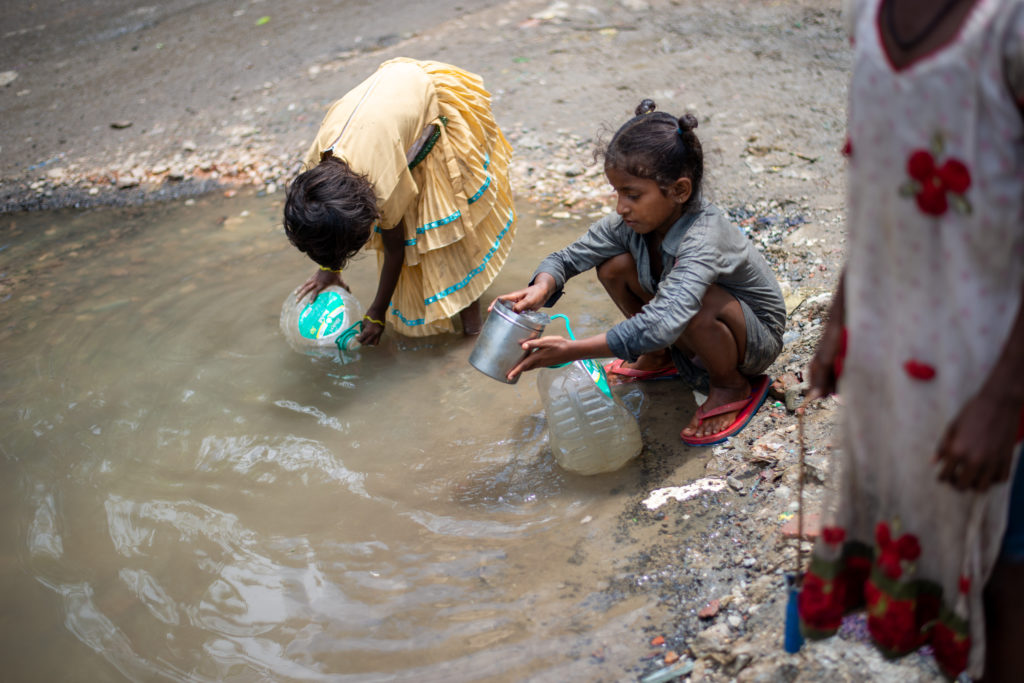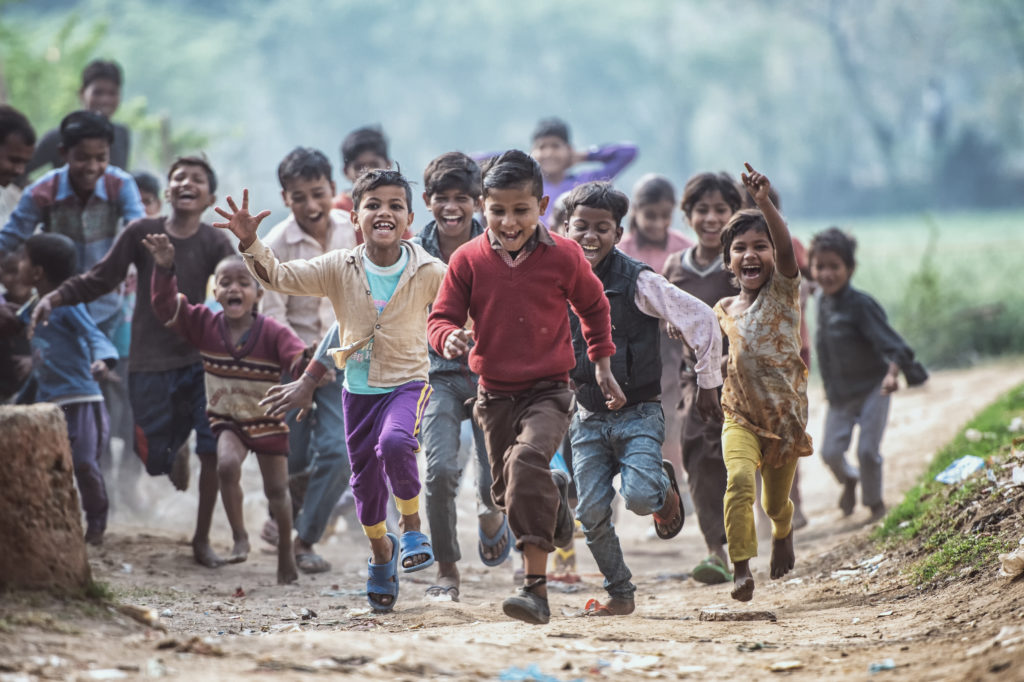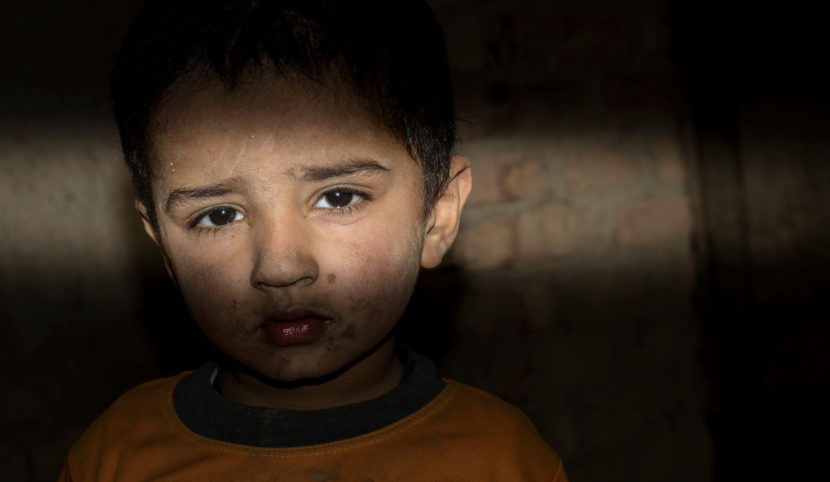In today’s world, economic instability – characterized by swings in employment, income, and resource availability – has become a common occurrence. Even though adults are most affected by financial crises and economic downturns, the effects of this instability go well beyond their financial concerns. Particularly, children are frequently the silent victims of economic instability, suffering long-lasting and significant effects in various areas of their development.
Family life in the first line of battle
Global economic volatility has a tremendous effect on dynamics, relationships, and well-being within the framework of family life. It’s widely recognized that financial concerns affect relationships and pervade daily life, which can lead to strained familial ties and increased interpersonal tensions during economic downturns (Conger & Donnellan, 2007).
Families may experience increased levels of worry, dissatisfaction, and conflict due to the uncertainty around housing, work, and money, as parents struggle to support their children in the face of financial hardship. Unfortunately, many marriages break because of negative financial changes and their consequences, and children from such families further lose their sense of safety.
Furthermore, as families adjust to changing financial circumstances and negotiate shifting dynamics in caregiving, breadwinning, and household management, economic instability may upend traditional gender roles and expectations within households, adding to stress and discord. The stress and uncertainty associated with financial strain can also exacerbate parental anxiety and depression, compromising the quality of caregiving and the emotional climate within the household.
Heavy toll on children’s health and wellbeing
In the current economic climate, children’s health and well-being are facing significant challenges, particularly in terms of access to healthcare services. The financial strain caused by job loss affects the prioritization of regular medical check-ups in family budgets. This shift in priorities can result in delayed diagnoses of serious medical conditions.
Particularly in countries like the US, where parental job loss often leads to children losing medical insurance, the consequences for children’s health can be dire (Fairbrother et al, 2010). This statistic is alarming, especially considering that for every 1,000 jobs lost, 311 privately insured children lose coverage. Even more concerning is that over 45% of the poorest and most vulnerable privately insured children become uninsured in such circumstances.
Research conducted by the National Library of Medicine on the development of American school-aged children revealed the influence of economic hardship on children’s welfare. Specifically, the study underscored the link between economic hardship and inadequate dietary intake among children, manifesting in higher rates of malnutrition, obesity, and related health complications (Alaimo et al. 2001).
Another study conducted by the National Library of Medicine in Bangalore, India, revealed that malnourished children displayed subpar performance in cognitive functions like attention, working memory, and verbal learning. These results highlight the susceptibility of cognitive functions to the effects of malnutrition, particularly in developing countries like India, where an estimated 52% of children suffer from malnutrition (Kar et al, 2008).

Education at risk
Economic instability significantly affects education, a crucial aspect of childhood development. Families may need children to work to support income, which can lead to reduced time and resources for schooling. (Duncan & Magnuson, 2013). The Canadian Survey of Labour and Income Dynamics also shows that parental job loss leads to an increase in children’s probability of dropping out of high school and a decrease in the probability of entering university (Kalil, 2009).
In regions facing economic instability, the repercussions on education are particularly severe. For instance, Sri Lanka‘s education sector has been grappling with challenges for years. The situation worsened with pandemic-related school closures during the peak of the pandemic in 2020 and subsequent fuel shortages in 2022. Escalating food prices further hindered school attendance, often causing children to miss classes due to hunger. As a result, child nutrition in Sri Lanka has regressed, with nearly 43% of children under five experiencing undernutrition (Levi, 2023).
Disruptions in the overall psychosocial development
A stable family environment and healthy social connections are crucial for psychosocial growth. Some children develop a strong feeling of guilt and embarrassment because they cannot help ease the burden adults in their families carry and deal with in a more or less healthy manner (Abrams, 2023). Consequently, they may feel compelled to drop out of school and seek employment to help support their families, sacrificing their education.
Economic shocks in developing countries like Guatemala, Tanzania, and Argentina have prompted shifts in children’s labor participation. When households face sudden income losses, parents often reduce their children’s full-time school attendance while increasing their involvement in economic activities. However, approximately two-thirds of these working children still manage to attend school (Koseleci & Rosati, 2009).
In countries like Lebanon, the economy is grappling with a significant collapse, marked by a currency devaluation of more than 90%. This crisis, comparable to some of the most severe in global history since the 1850s, has resulted in around four million people needing humanitarian aid according to data from 2023 (Lenarcic, 2023). As a result, many children are facing unparalleled levels of food insecurity, worsening an already dire hunger crisis nationwide (Save the Children, 2022).
Supporting the healthy development of children during economic turbulence
Governments are vital in ensuring children’s general safety and reducing the negative consequences of financial unrest during times of worldwide economic instability. First, governments can put in place extensive social safety net programs to help children and families in need who are struggling financially. This includes programs like food assistance programs, cash transfer programs, and subsidized healthcare services.
In order to address the underlying causes of economic instability and lessen the prevalence of poverty and inequality, which are important factors influencing children’s well-being, governments should also invest in policies that support job creation, economic growth, and social equity (Stevenson & Wolfers, 2008).
Through focused interventions and support services, NGOs and humanitarian groups also play critical roles in safeguarding children’s general well-being during times of economic hardship. These groups can give children and families in need immediate support by giving them access to resources for education, healthcare, food, and shelter.

As in the case of other types of crises, the response of us all as individuals and as a society affects the outcomes of the crises to a great extent. With that in mind, we encourage you to consider sponsoring a child, making a donation, or volunteering with Humanium if you would like to support our cause of aiding children around the world.
Written by Zeljka Mazinjanin
Bibliography:
Abrams Z. (2023), Are your kids stressed about family finances? Psychologists offer answers for addressing anxiety over tight budgets. Retrieved from American Psychological Association, available at https://www.apa.org/topics/money/family-financial-strain, accessed on March 25, 2024.
Alaimo, K. et al. (2001). Food insufficiency and American school-aged children’s cognitive, academic, and psychosocial development. Retrieved from National Library of Medicine, available at https://pubmed.ncbi.nlm.nih.gov/11433053/, accessed on March 25, 2024.
Conger, R. D., & Donnellan, M. B. (2007). An interactionist perspective on the socioeconomic context of human development. Retrieved from Research Gate, available at https://www.researchgate.net/publication/6883228_An_Interactionist_Perspective_on_the_Socioeconomic_Context_of_Human_Development, accessed on March 25, 2024.
Duncan, G. J. & Magnuson, K. (2013), Investing in preschool programs. Retrieved from Journal of Economic Perspectives, available at https://pubs.aeaweb.org/doi/pdfplus/10.1257/jep.27.2.109, accessed on March 25, 2024.
Fairbrother et al (2010), The impact of parental job loss on children’s health insurance coverage. Retrieved from National Library of Medicine, available at https://pubmed.ncbi.nlm.nih.gov/20606186/, accessed on March 25, 2024.
Kalil A. (2009). Joblessness, family relations and children’s development. Retrieved from Australian Institute of Family Studies, available at https://aifs.gov.au/research/family-matters/no-83/joblessness-family-relations-and-childrens-development, accessed on March 25, 2024.
Kar et al (2008), Cognitive development in children with chronic protein energy malnutrition. Retrieved from National Library of Medicine, available at https://www.ncbi.nlm.nih.gov/pmc/articles/PMC2519065/, accessed on March 25, 2024.
Koseleci N. & Rosati C. F. (2009), Child labour and the global financial crisis: an issues paper. Retrieved from The World Bank available at https://documents.worldbank.org/en/publication/documents-reports/documentdetail/962861468333263892/child-labour-and-the-global-financial-crisis-an-issues-paper, accessed on April 1, 2024.
Lenarcic, J. (2023), Lebanon: €60 million in humanitarian aid for the most vulnerable. Retrieved from European Neighbourhood Policy and Enlargement Negotiations (DG NEAR), available at https://neighbourhood-enlargement.ec.europa.eu/news/lebanon-eu60-million-humanitarian-aid-most-vulnerable-2023-03-30_en, accessed on April 2, 2024.
Levi K. T. (2023), Think of the children in Sri Lanka’s economic crisis. Retrieved from East Asia Forum available at https://eastasiaforum.org/2023/07/19/think-of-the-children-in-sri-lankas-economic-crisis/, accessed on April 1, 2024.
ReliefWeb (2021), Violent Beginnings: Children growing up in Lebanon’s crisis December 2021. Retrieved from ReliefWeb, available at https://reliefweb.int/report/lebanon/violent-beginnings-children-growing-lebanon-s-crisis-december-2021-enar, accessed on April 1, 2024.
Save the Children (2022), Lebanon’s economic crisis ‘spirals out of control’, pushing children further into hunger in 2022, Save the Children warns. Retrieved from Save the Children at, available at https://www.savethechildren.net/news/lebanon-s-economic-crisis-spirals-out-control-pushing-children-further-hunger-2022-save, accessed on April 2, 2024.
Stevenson B. & Wolfers J. (2008), Economic growth and subjective well-being: reassessing the easterlin paradox. Retrieved from the National Bureau of Economic Research, available at https://www.nber.org/system/files/working_papers/w14282/w14282.pdf, accessed on March 25, 2024.
Usher A. (2012), Student Motivation— An Overlooked Piece of School Reform. retrieved from Centre on Education Policy, available at https://files.eric.ed.gov/fulltext/ED532666.pdf, accessed on March 25, 2024.


